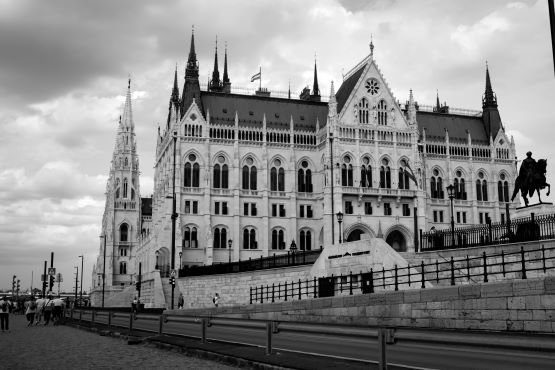
Relocating to a new country is a monumental decision, filled with dreams of better opportunities, a higher quality of life, and exciting cultural experiences. For many Pakistanis, Hungary presents an appealing option due to its central European location, affordable education, and relatively low cost of living compared to Western Europe. However, the reality of starting over in Hungary often comes with unexpected challenges. From navigating a foreign language to adapting to cultural differences, the journey can be overwhelming. This blog aims to uncover the major problems you may face while moving from Pakistan to Hungary, helping you prepare for the hurdles ahead and make informed decisions.

1. Language Barriers: The First Obstacle
1.1 Difficulty in Learning Hungarian
Hungarian is one of the most challenging languages for non-native speakers. Its complex grammar rules, extensive vocabulary, and unique sentence structures make it daunting, especially for those whose native language is Urdu or English.
Pro Tip: Start learning basic Hungarian phrases before your move. Websites like Duolingo can be a great resource.
1.2 Limited English Proficiency Among Locals
While English is widely spoken in tourist areas, you will find that in smaller towns, local markets, and government offices, Hungarian dominates. This language gap can turn simple tasks like grocery shopping, using public transport, or visiting a doctor into stressful experiences.
1.3 Language and Job Market Constraints
Many employers in Hungary prefer candidates who speak Hungarian, even for roles that don’t strictly require it. This can significantly limit job opportunities for new immigrants.

2. Cultural Differences: Adjusting to a New Way of Life
2.1 A Reserved Social Culture
Hungarians are generally reserved, which can feel starkly different from the warm and hospitable nature of Pakistani society. Initiating conversations or building friendships might take more time and effort.
2.2 Adapting to Hungarian Traditions
Hungary’s traditions and festivals, such as Easter egg painting or Christmas markets, might feel unfamiliar. Adjusting to these customs while missing familiar Pakistani festivities can be emotionally challenging.
2.3 Limited Availability of Halal Food
Pakistani cuisine is rich and diverse, and finding halal food or traditional spices in Hungary can be a significant hurdle. While Budapest has a few halal stores and restaurants, options are limited and often more expensive.
Related: Check out this guide to halal restaurants in Budapest.

3. Navigating Bureaucracy: A Test of Patience
3.1 Complex Residency Permit Processes
Applying for residency permits involves understanding detailed paperwork, meeting strict deadlines, and making multiple visits to immigration offices. Missteps can delay approvals significantly.
3.2 Banking and Financial System Challenges
Opening a bank account in Hungary can be a daunting task, as many banks require proof of residency and other documentation that might not be readily available to new arrivals.
3.3 Tax and Legal Complications
Understanding Hungary’s tax laws and legal requirements can be confusing for newcomers, particularly if you plan to work or start a business. Seeking professional advice is often necessary.

4. Job Market Challenges: Finding Employment
4.1 Limited Recognition of Pakistani Degrees
Degrees and certifications obtained in Pakistan may not be immediately recognized in Hungary, requiring additional equivalency tests or further education to qualify for certain jobs.
Learn more about degree equivalency on the European Commission’s website.
4.2 Bias in Employment Opportunities
While Hungary has a growing job market, non-EU nationals often face challenges due to preferential hiring of EU citizens. This can lead to limited opportunities or lower-paying jobs.
4.3 Lack of Networking Opportunities
In Hungary, networking is crucial for securing good jobs. Without established local connections, finding employment becomes more difficult.

5. Weather Woes: From Karachi Heat to Budapest Winters
5.1 Harsh Winter Conditions
Hungary’s winters are known for their freezing temperatures, icy winds, and snowfall. For someone accustomed to Pakistan’s warm climate, this can be a major adjustment.
5.2 Coping with Seasonal Affective Disorder (SAD)
The short daylight hours during winter months can affect mental health, leading to fatigue, low mood, and reduced motivation.
Pro Tip: Invest in warm clothing and consider using a light therapy lamp to combat SAD.
5.3 Preparing for Sudden Weather Changes
Hungary’s weather can be unpredictable, with sudden rains or heatwaves during transitional seasons. Adapting to this requires planning and flexibility.

6. Housing: Finding a Place to Call Home
6.1 Rising Rental Costs in Budapest
The demand for housing in cities like Budapest has driven up rental prices, making it challenging to find affordable accommodation in convenient locations.
6.2 Discrimination in the Housing Market
Unfortunately, some landlords are hesitant to rent to foreigners, especially non-Europeans. This adds another layer of difficulty to the already competitive housing market.
6.3 Understanding Local Lease Agreements
Lease agreements in Hungary may include clauses unfamiliar to Pakistani tenants. Understanding the terms, deposits, and responsibilities is crucial to avoid disputes.
Related: Check out FlatRent Budapest for expat-friendly housing options.

7. Loneliness and Social Isolation
7.1 Struggles with Building Friendships
The language barrier and cultural differences often make it hard for expatriates to build a strong social circle, leading to feelings of isolation.
7.2 Missing Family and Cultural Ties
Being away from family and missing out on significant cultural events like Eid or family gatherings can heighten feelings of homesickness.
7.3 Limited Expat Support Networks
While there are expat communities in Hungary, they may not always cater specifically to South Asians, making it harder to find relatable support.
Final Thoughts: Is It Worth It?
Moving to Hungary from Pakistan can be a rewarding experience if you’re prepared for the challenges. Understanding the major problems you may face helps set realistic expectations and ensures a smoother transition. Remember, every difficulty comes with an opportunity for growth.
For more guidance, explore expat communities like InterNations Hungary.
Have you moved to Hungary? Share your experiences in the comments below!




